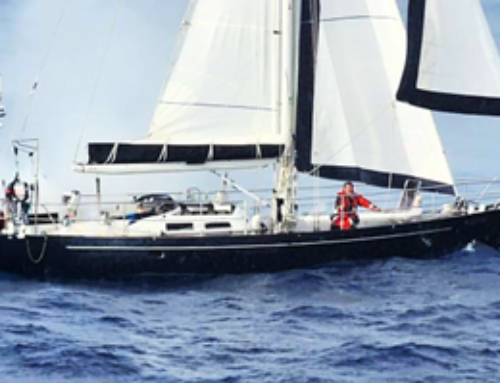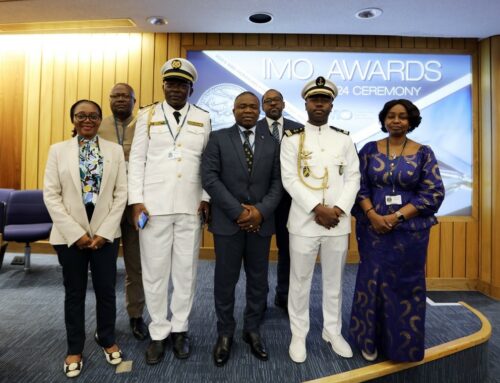What We Still Don’t Know About Motorcycle Crashes
 Motorcyclists—motorcycle riders and their passengers—have the highest risk of fatal injury among all motor vehicle users. Despite making up only about 0.6% of all vehicle miles traveled in the United States in 2020, motorcyclists accounted for 14% of total traffic fatalities and 18% of all driver and passenger fatalities. However, despite the efforts of researchers and safety advocates, there still is lots of uncertainty and controversy about the causes and consequences of motorcycle crashes.
Motorcyclists—motorcycle riders and their passengers—have the highest risk of fatal injury among all motor vehicle users. Despite making up only about 0.6% of all vehicle miles traveled in the United States in 2020, motorcyclists accounted for 14% of total traffic fatalities and 18% of all driver and passenger fatalities. However, despite the efforts of researchers and safety advocates, there still is lots of uncertainty and controversy about the causes and consequences of motorcycle crashes.
One of the main sources of information about motorcycle crashes is the Hurt Report, a landmark study conducted in the 1970s that analyzed over 900 motorcycle accidents in Los Angeles. The report revealed some important findings, such as the role of alcohol, speed, visibility, and helmet use in motorcycle crashes. However, the report also had some limitations, such as the lack of data on other types of gear, locations, road conditions, and crash dynamics.
Since then, there have been other attempts to comprehensively study motorcycle crashes. For example, we have the Motorcycle Accident In-depth Study (MAIDS) in Europe, the Motorcycle Crash Causation Study (MCCS) in the United States, and various state-level studies. However, these studies also have faced challenges, such as low sample sizes, outdated data, inconsistent methodologies, and conflicting results.
As a result, there are many questions that remain unanswered or disputed about motorcycle crashes, such as:
- How effective are different types of helmets and gear in preventing or reducing injuries?
- How do road design, traffic density, weather, and lighting affect crash risk and severity?
- How do rider characteristics, such as age, gender, experience, training, and attitude influence crash involvement and outcome?
- How do rider behaviors, such as lane splitting, speeding, braking, cornering, and evasive maneuvers, affect crash probability and outcome?
- How do vehicle characteristics, such as size, type, visibility, and technology, affect crash occurrence and outcome?
- How do human factors, such as perception, attention, distraction, fatigue, and impairment, affect crash causation and outcome?
- How do legal factors, such as licensing, registration, insurance, and enforcement, affect crash occurrence and outcome?
These questions are not only important for understanding the nature and extent of the problem, but also for developing effective solutions and policies to prevent or mitigate motorcycle crashes. However, to answer these questions, we need more reliable and comprehensive data on motorcycle crashes overall.
One way to collect such data is to use naturalistic methods, such as those that involve installing cameras and sensors on motorcycles to record rider behavior and environmental conditions before, during, and after a crash. This approach can provide rich and objective information on the factors that contribute to or prevent a crash. However, this method also has some drawbacks, such as ethical issues, privacy concerns, costs, and technical challenges.
 Another way to collect data is to use surveys and interviews, which involves asking riders and other road users about their experiences and opinions on motorcycle crashes. This approach can provide valuable insights on the attitudes, beliefs, and motivations that influence rider behavior and crash involvement. However, this method also has some limitations, such as recall bias, social desirability bias, and sampling bias.
Another way to collect data is to use surveys and interviews, which involves asking riders and other road users about their experiences and opinions on motorcycle crashes. This approach can provide valuable insights on the attitudes, beliefs, and motivations that influence rider behavior and crash involvement. However, this method also has some limitations, such as recall bias, social desirability bias, and sampling bias.
So, in order to get a more complete and accurate picture of motorcycle crashes, we need to combine different sources and methods of data collection and analysis. We also need to collaborate with individuals, such as riders, manufacturers, researchers, educators, advocates, and policymakers, to share information and perspectives on motorcycle crashes. By doing so, we can improve our knowledge and understanding of this complex and dynamic phenomenon, and ultimately enhance our safety and enjoyment of riding motorcycles.
We at the Herd Law Firm, PLLC, are drivers and motorcycle riders, too! We support divers, bikers and motorcyclists injured on the road, and have successfully represented such victims seeking the assistance and compensation they so need and deserve.
6/2/2023
Sources:
- https://www.revzilla.com/common-tread/ask-the-doc-what-we-dont-know-about-motorcycle-crashes
- https://crashstats.nhtsa.dot.gov/Api/Public/ViewPublication/812148
- https://www.vtti.vt.edu/nmss/







